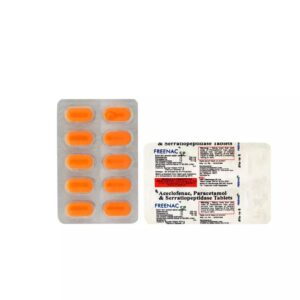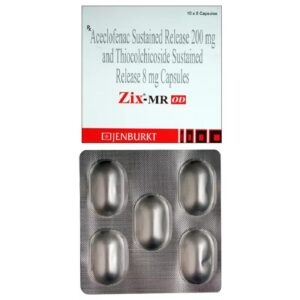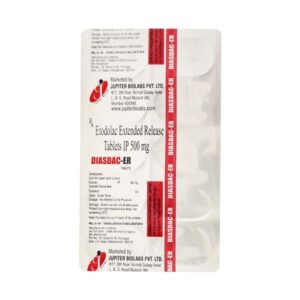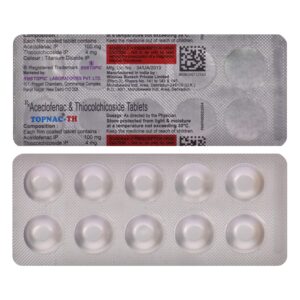ACECLOFENAC
ACECLOFENAC: ACECLOFENAC is a non-steroidal anti-inflammatory drug (NSAID) that is commonly used to relieve pain and reduce inflammation in conditions such as osteoarthritis, rheumatoid arthritis, and ankylosing spondylitis.
The drug works by inhibiting the production of certain chemicals in the body called prostaglandins. Prostaglandins are responsible for causing pain, fever, and inflammation. By inhibiting their production, ACECLOFENAC helps to alleviate these symptoms.
ACECLOFENAC is typically available in the form of oral tablets or capsules. The recommended dose for adults is usually 100 mg to 200 mg of ACECLOFENAC twice daily after meals. However, the dosage may vary depending on the severity of the condition, individual response, and the prescribing doctor’s recommendation. It is important to follow the dosage instructions provided by the doctor or mentioned on the packaging.
As with any medication, ACECLOFENAC can potentially cause side effects. Common side effects may include gastrointestinal disturbances such as stomach pain, indigestion, nausea, diarrhea, and constipation. Less commonly, ACECLOFENAC may cause dizziness, headache, skin rash, itching, and fluid retention. In rare cases, it may also lead to serious side effects such as liver or kidney damage, allergic reactions, or gastrointestinal bleeding. If any of these side effects occur or worsen, it is essential to seek medical attention promptly.
It is important to note that ACECLOFENAC is a prescription medication, and it should only be used under the supervision of a healthcare professional. It is not recommended for use in individuals with a history of hypersensitivity to NSAIDs, peptic ulcers, bleeding disorders, severe renal impairment, or severe hepatic impairment. The use of ACECLOFENAC should be avoided during pregnancy and lactation unless prescribed by a doctor.
It is best to consult with a healthcare professional or pharmacist for personalized information regarding the use, dose, and side effects of ACECLOFENAC.









